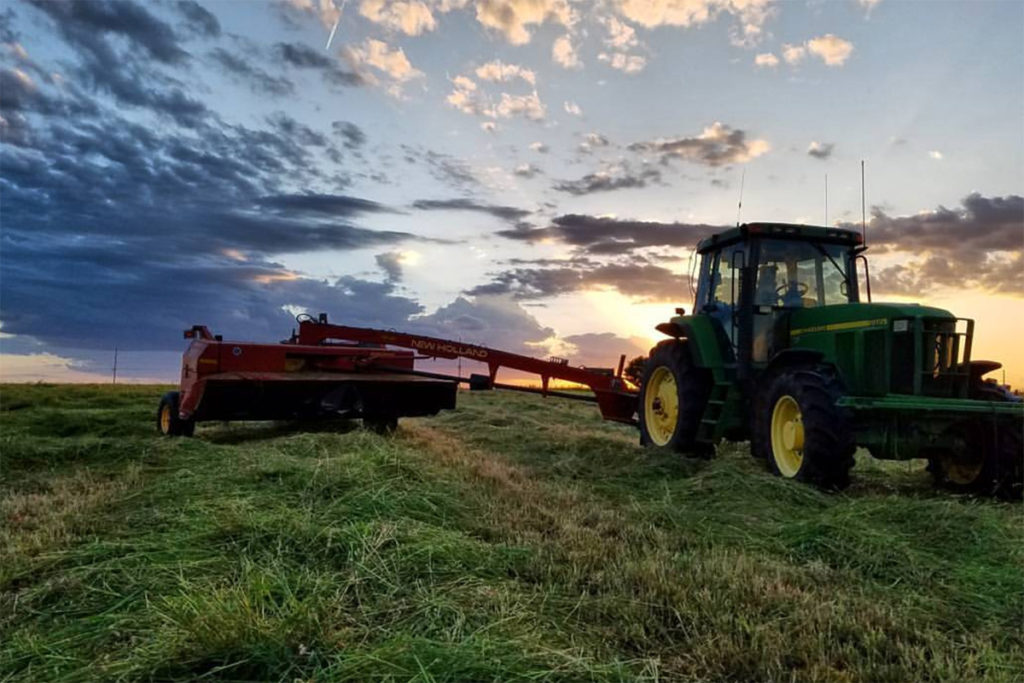
As a third-generation owner-operator of his family’s 1,200-acre farm in Indiana, Steve Vail knows a thing or two about crop and livestock production.
As a director of an electric cooperative with a broadband subsidiary, he knows the transformative impact modern high-speed communication technology can have on a community.
Bringing these two critical perspectives together is why Vail is excited about his recent appointment, along with three other co-op leaders, to three Federal Communications Commission working groups on precision agriculture.
“I strongly believe that the viability of many family farms across the country may very well lie with availability of and access to technology that can only be facilitated through broadband,” said Vail, vice chairman of the board of directors of NineStar Connect in Greenfield, Indiana.
Precision agriculture involves computerized, connected technologies that bring greater efficiency to farm tasks like seeding, fertilizing, applying herbicide and watering. It can result in higher production and less waste.
Vail is a member of the FCC’s Precision Agriculture Connectivity Task Force, which was created by the 2018 Farm Bill to address the need for broadband access across farms and ranches. He will also serve on the task force’s working group on Accelerating Broadband Deployment on Unserved Agriculture Lands.
“For precision agriculture to happen in rural areas, we have to have that broadband infrastructure,” Vail said. “The task force will help the FCC understand what policies and regulations they can put in place to facilitate that.”
Mark Suggs, executive vice president and general manager of Pitt & Greene EMC, said the combination of smart farming equipment and internet access will enable U.S. farms to “compete in today’s economically depressed world.”
“Without reliable internet, the U.S. agriculture sector will continue to lag in these markets,” he said.
Suggs, a farmer and manager of the Farmville, North Carolina-based co-op for 37 years, will represent NRECA on the FCC group’s Mapping and Analyzing Connectivity on Agricultural Lands Working Group. He says identifying and measuring gaps in the availability of reliable internet access is the first key step.
“We then have to recommend measures to accomplish the goal of making broadband service available to all rural communities in America,” he said. “We have an opportunity to further lead the world in the agriculture field as well as in beneficial electrification. We cannot lose this battle.”
The FCC, in consultation with the U.S. Department of Agriculture, also appointed Midwest Energy and Communications CEO Bob Hance to the Encouraging Adoption of Precision Agriculture and Availability of High-Quality Jobs on Connected Farms Working Group and Valerie Connelly of Choptank Electric Cooperative to the Examining Current and Future Connectivity Demand for Precision Agriculture Working Group.
Connelly said she looks forward to providing perspectives from a rural cooperative whose farmer members must meet state and federal Chesapeake Bay cleanup goals yet lack broadband access to adopt the best technologies. She is vice president of government affairs and public relations at the Denton, Maryland-based co-op.
Hance said he hopes their work for the commission “results in broader and widespread adoption of farm technologies that fundamentally improve the outcomes for rural farmers and ranchers and makes it possible to continue to increase yields, improve efficiencies and meet the ever-increasing demand for production.”
“In reality, all this can’t happen until real progress is made with extending true, robust and reliable internet to the rural parts of this country,” he said from his co-op based in Cassopolis, Michigan.
FCC Chairman Ajit Pai said he is targeting $1 billion for precision agriculture from a proposed $9 billion 5G Fund to support “next generation wireless services.” “The FCC must play a constructive role in promoting these efforts and supporting investment in high-speed internet in ways that specifically help precision agriculture,” Pai said.
Cathy Cash is a staff writer at NRECA.